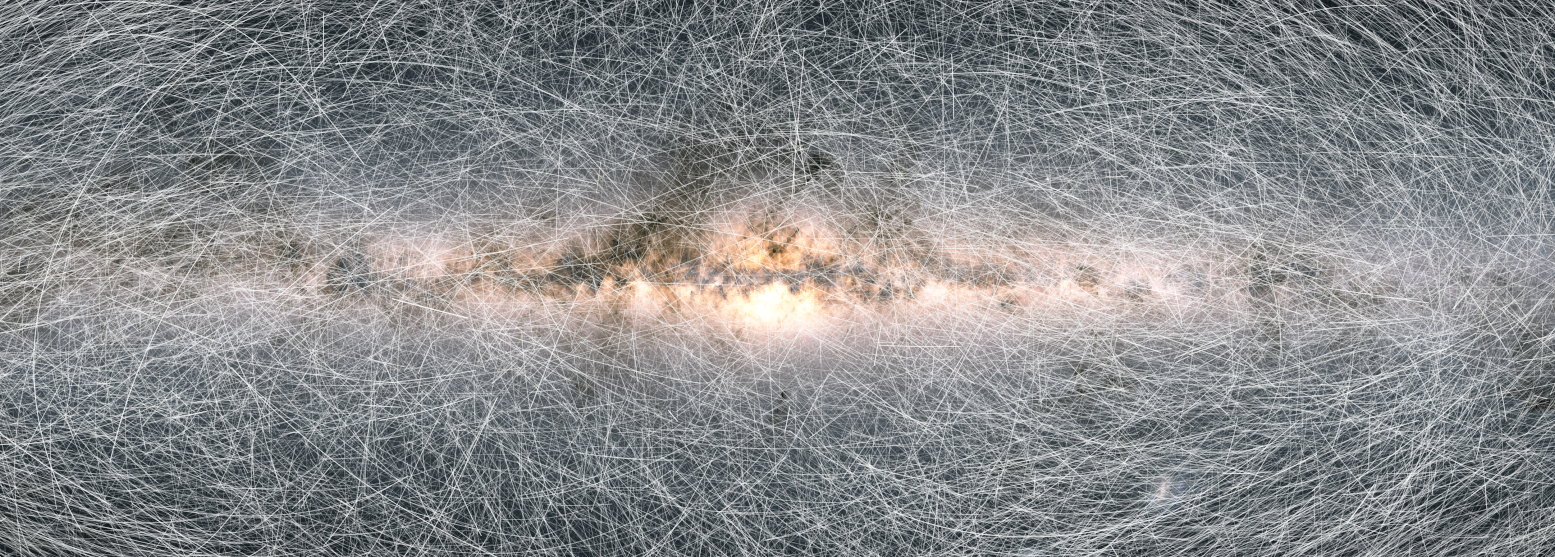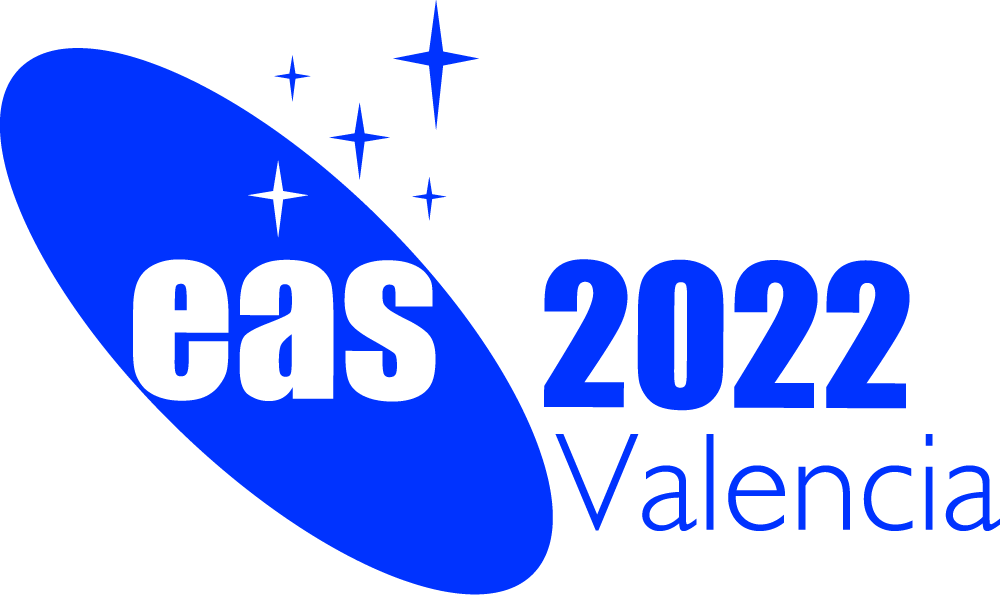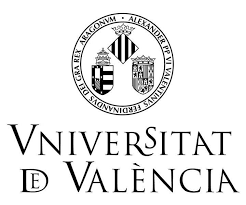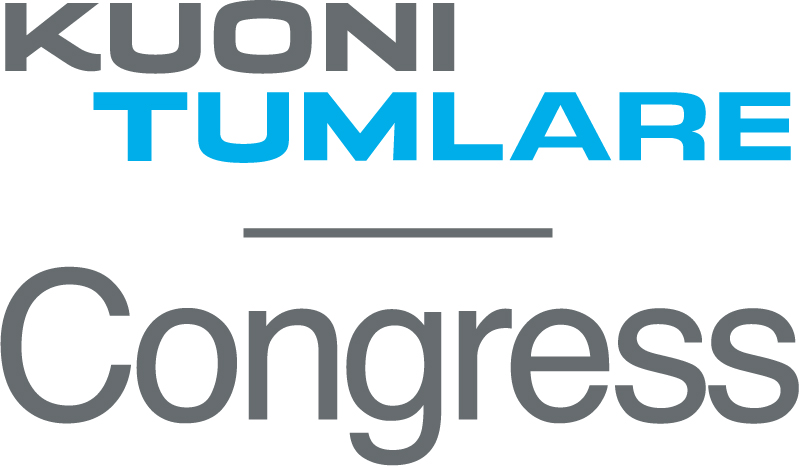Symposium (incl. Lunch) S12
27-28 June 2022
Gaia: The (TWO) Billion Star Galaxy Census: The Dawn of Gaia DR3

News:
- 20220116 Session Information updated.
Aims and scope
The updated ESA Gaia Billion Star Census of the Milky Way, will be released in the second quarter of 2022 (thus in advance of EAS 2022), as Gaia Data Release 3 (Gaia DR3). This release updates and extends Gaia EDR3, containing the full five parameter astrometry for ~1.5 billion sources, but now including much improved astrophysical parameters based on source spectra, the spectra themselves (XP and RVS), some 33M radial velocities, and well characterised sample catalogues of variables, binaries, extended objects, and solar system objects (see https://www.cosmos.esa.int/web/gaia/data-release-3 for details).
This marks the next major milestone in the Gaia mission, following on from the Gaia Early Data Release 3 (Gaia EDR3) in December 2020. Gaia is revolutionising our understanding of the formation history of the Milky Way, and is having a significant impact on many other areas of astronomy ranging from solar system science to quasars.
The key goals of this symposium will be for the Gaia/GREAT and related communities (and especially early stage researchers) to present and discuss their science highlights resulting from Gaia EDR3 and the very first results from Gaia DR3. It will allow the Gaia project to update the science community with the latest scientific and technical performance of Gaia, review the early science, including the Science Performance publications from Gaia DR3, and provide an early look ahead to the future release of Gaia DR4.
GREAT plenary meetings have run since 2009, allowing members of the GREAT and wider community to participate in a dynamic fashion. They are structured around
Gaia updates, presentations from related organisations (e.g. ESO), reports from new initiatives, and new science results from the network activities.
This will be the 15th GREAT plenary (which since 2012 have been organised within the high impact EAS EWASS - see the links to online materials at
http://great.ast.cam.ac.uk/Greatwiki/GreatHome for the Gaia/ GREAT symposia held at the EWASS's in Rome (S5), Turku (S11, SM5), Geneva (S3), La Laguna (S9),
Athens (S1), Prague (S2), Liverpool (S2), Lyon (SS28), Leiden-virtual (S10) and Leiden-virtual (S15)).
GREAT (an initiative of the ESA Gaia Project, Gaia Science Team and Data
Processing and Analysis Consortium (DPAC) Executive) is a pan-European research
network involving over 1000 researchers in 20+ countries with a common interest
in maximising the science potential of Gaia (http://www.great-esf.eu). GREAT, in
the form of the MW-Gaia COST Action (https://www.cost.eu/actions/CA18104) is
currently financially supporting networking activities across Europe.
Programme
- Gaia DR3: Highlight Science including presentations from the Gaia DR3 performance verification paper teams
- Gaia / GREAT/MW-Gaia / Gaia Unlimited Status
- Gaia EDR3/DR3: Highlight Science (The Milky Way as a Galaxy)
- Gaia EDR3/DR3: Highlight Science (The Birth, Life and Death of Stars)
- Gaia EDR3/DR3: Highlight Science (from Solar system to reference frames)
- Gaia networking and ground based synergies with Gaia
- Lunch session with an update on the Gaia Archive, and update on the ESA Voyage 2050 L mission concept (GaiaNIR), and also an opportunity for
poster presenters to deliver a 'lightening' talk of their (e-)poster.
Invited speakers
The speakers and programme will be available at the meeting website - see http://great.ast.cam.ac.uk/Greatwiki/GreatMeet-PM15
- Session 1 will include a headline talk from Teresa Antoja (University of Barcelona, ES)
- Session 2 will include Gaia status update talks from Timo Prusti (Gaia), Anthony Brown and Antonella Vallenari (DPAC), Nic Walton (MW-Gaia)
- All other session talks will be contributed presentations.
Scientific organisers
The co-Chairs are Nicholas Walton (Institute of Astronomy, University of Cambridge, UK), Anthony Brown (Leiden Observatory, Leiden University, NL), and Timo Prusti (ESTEC, ESA).
Contact
Nicholas Walton (naw at ast.cam.ac.uk)
Updated on Sun Jan 16 17:58:13 CET 2022
|

 A power cut will shut down all EAS services on Tuesday, 10 January 2017 starting at 7:30 CET.
A power cut will shut down all EAS services on Tuesday, 10 January 2017 starting at 7:30 CET.


